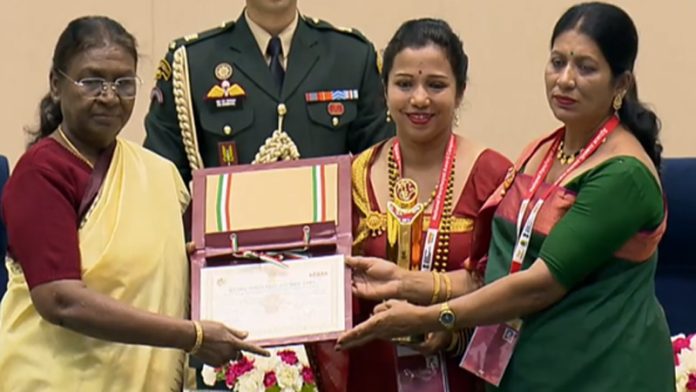The vision of a developed India hinges on the growth and empowerment of its villages. As President Droupadi Murmu aptly highlighted during the National Panchayat Awards ceremony, rural development is not just a desirable goal but an indispensable foundation for transforming India into a self-reliant and prosperous nation. With 64 percent of the country’s population residing in rural areas, the path to national progress runs through the heart of our villages. The Panchayati Raj system has been a cornerstone of decentralised governance, ensuring that local communities have a voice in decision-making processes. Empowering panchayats to become self-reliant is the broader goal of inclusive development. The National Panchayat Awards, conferred upon 45 panchayats-17 of which are led by women-serve as a testament to the transformative potential of grassroots governance. The awards are not merely symbolic but a recognition of exemplary efforts in driving sustainable development at the village level. These panchayats have demonstrated that local governance, when empowered and supported, can address critical issues such as education, healthcare, sanitation, and infrastructure with remarkable efficiency. This recognition should inspire other panchayats to adopt innovative and inclusive approaches to village development.
Panchayats need to develop their own sources of revenue. Self-reliance in revenue generation can empower Gram Sabhas to address local issues with greater autonomy and confidence. Whether through innovative taxation systems, promoting local industries, or leveraging natural resources sustainably, panchayats must prioritise building economic resilience. One way can be Panchayats encouraging the establishment of MSMEs that cater to local and regional markets. They can also tap into renewable energy projects, eco-tourism, and organic farming initiatives that not only generate income but also contribute to environmental sustainability.
One of the most heartening aspects of the National Panchayat Awards is the recognition of women-led panchayats. Women’s participation in grassroots governance has been a game-changer in addressing issues that directly impact families and communities. Whether it is improving sanitation, enhancing access to education, or addressing social inequalities, women leaders have brought a unique perspective and dedication to their roles. The need of the nation is to further encourage their participation in political processes. Quotas for women in panchayat elections have proven to be a successful strategy, but the journey doesn’t end there. Capacity-building programs, leadership training, and the elimination of societal barriers are essential to ensure that women representatives can perform their duties effectively and fearlessly.
Elections are the bedrock of democracy, and timely, transparent, and fair panchayat elections are crucial to maintaining the accountability of public representatives. Elections instill a sense of responsibility among leaders, making them answerable to their constituents. Delays or irregularities in the electoral process also stall developmental activities at the grassroots level. As such, State Governments must prioritise the smooth conduct of panchayat elections, ensuring that logistical and administrative challenges are addressed proactively. Additionally, awareness campaigns should be conducted to encourage voter participation, particularly among marginalised communities and women, thereby strengthening the democratic mandate of panchayats.
Practically, the foundation of a developed India can only be laid on the strength of self-reliant and capable local bodies. The National Panchayat Awards are a reminder of the transformative power of grassroots leadership and the untapped potential of rural India.
Trending Now
E-Paper


